
The government has claimed price stability as inflation has dropped to pre-2008 economic crisis level, standing at 6.93% in November over a year ago.
Inflation based on the Consumer Price Index (CPI) rose 6.93% in November over the corresponding period of last year, announced Sohail Ahmad, Secretary of Statistics Division while unveiling the latest figures here on Monday.
“It was the lowest rate of increase since July 2008”, the month when the government rebased the CPI basket and also changed calculation methodology by adding more goods and changing weights assigned to every product.
It was also the lowest level recorded precisely after five and a half years. Last time, the inflation stood that low was in May 2007, when the figure was 6.92%.
Ahmad said all inflation indices – the CPI, Sensitive Price Index and Wholesale Price Index – showed price stability, adding in November the CPI-based inflation actually dropped 0.4% over October this year.
For the first time since July 2011, the core inflation – excluding volatile energy and food prices – slipped to single digits at 9.7% in November over a year ago, said Ahmad. However, double-digit inflation was still recorded in the categories of transport, health, household equipment, recreation and culture, hotels, clothing and footwear and alcoholic beverages and tobacco.
The reasons
Ahmad said the single-digit inflation was largely because of improved supply of food items, especially essential products like sugar and wheat that also determine price trends of other commodities.
He said import of vegetables and fruits from India due to trade normalisation was benefitting the consumers and helping in maintaining price stability. All basic items like onions, potatoes and tomatoes were available in abundance, he said.
However, Ahmad pointed out that average inflation for the first five months (July-November) of the current fiscal year was at 8.4%, suggesting that “inflation is still reasonably high.”
While the Statistics Division claims that prices have largely settled, the Planning Commission and International Monetary Fund (IMF) expect the double-digit inflation to return.

In its latest report on Pakistan, the IMF says inflation has decelerated recently, but is likely to return to low double digits by the end of fiscal year 2012-13. It has forecast that yearly inflation will climb to 11.3% by June next year.
“The SBP’s direct lending to the government and provision of liquidity to facilitate bank purchases of government securities has accommodated higher deficits at the cost of higher inflation and currency depreciation,” says the IMF in its Post-Programme Monitoring report.
PC officials are of the view that the fall in inflation is the result of somewhat stable prices of food items and a high base effect. They expect inflation to start picking up again from December because of erosion of the base impact and the increase in wheat support price by 14.3%.
PC’s reports also suggest that the government’s decision to reduce gas-price slabs from four to three was also giving a benefit of one percentage point. Had the slabs been not revised, inflation would have been 7.93% in November.
The government not only reduced the slabs but also the rates. Compared to the price of Rs1,280 per million British thermal units (mmbtu) and Rs1,500 per mmbtu for third and fourth slabs respectively, the new rate for the last, the third slab, is Rs580 per mmbtu, said Shaukat Zaman, Director Prices of the Pakistan Bureau of Statistics.
Published in The Express Tribune, December 4th, 2012
COMMENTS (13)
Comments are moderated and generally will be posted if they are on-topic and not abusive.
For more information, please see our Comments FAQ



















1715074010-0/BeFunky-collage-(4)1715074010-0-270x192.webp)

1715080093-0/BeFunky-collage-(5)1715080093-0-270x192.webp)
1715080296-0/kanye-and-dolla-(1)1715080296-0-270x192.webp)











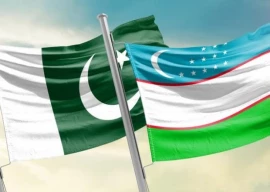
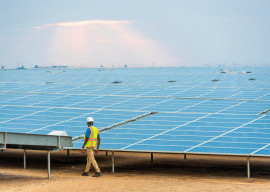


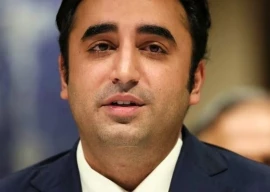

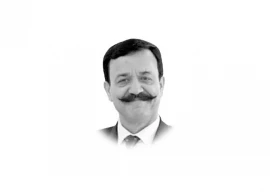



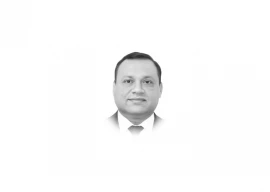

what is more surprising is that we have been exposed to so much of negativity in the last few years that any gud news only seems to be paradox. i fail to understand why so many are finding it hard to accept the fall in inflation. part of the reason could be that people are confusing inflation with prices. falling inflation does not mean falling prices. it only means that prices have risen at a less rapid pace than they did in the period before. i can partly see where this whole negativity is coming from. lik one of the cabinet minister asked the Finance Minister: ''If the pace of increase in prices was slowing down, does it mean the prices of commodities were coming down as well?'' and the answer is no.
Why just 6.93%, why not make it 2% on paper and call it the day? Why not drop the interest rate to 1% so the Govt cant borrow the entire budget from the SBP while SBP continues to debase the currency via OMOs?
There are global hedge funds watching the PKR very closely. Its going to get brutal very quickly, just like it did for the Indian Rupee.
I would love to know about the rebased basket! dollar at 97!, Petrol and Diesel at soaring rates, food cost up by margins! and the inflation is low! .. shed some light on this please!!!
so why are the common people unable to see the fruits of this reduction? why the buying power of the common man not increasing? why is a common man still hard stretched to make end meet in a month's salary?
A welcome news for the Pakistani economy and the general public!
People dont understand this is inflation rate, the life of a poor man and middle class has already been hurt by the inflation rates in 20s earlier.
pakistan have hold high reputation in the world, for duplicity and cheating with false numbers. We have regularly fudged numbers and told lies to international donors, coalition forces and common public. none of our estimates are correct and these are blatant lie. Dont believe a word of this nonsense, as it has no impact on our daily lives. Liers!!
The naysayers can deny this but the Pakistani stock market is at an all time high as well. Let us see how can they deny this fact?
@Truth Detector: how far figures can be fudged. It has come down to 6.9 from 25% in 2008. Be fair in criticism
Well... I know families personally who earns in between 15~20 thousand Rs and are barely meeting ends together. So much for the inflation report that clearly is delusional at its best where people were better off in 2007 than 2012.
Looks like those in power has all forgotten about meeting their creator one day!
Wow! let us forget about this for a while and write and comment a column on how "Taliban Khan can't bring the change". (Sooper - Sarcasm)
"Fudged Figures" for breakfast anyone? :->
Does this include CNG?